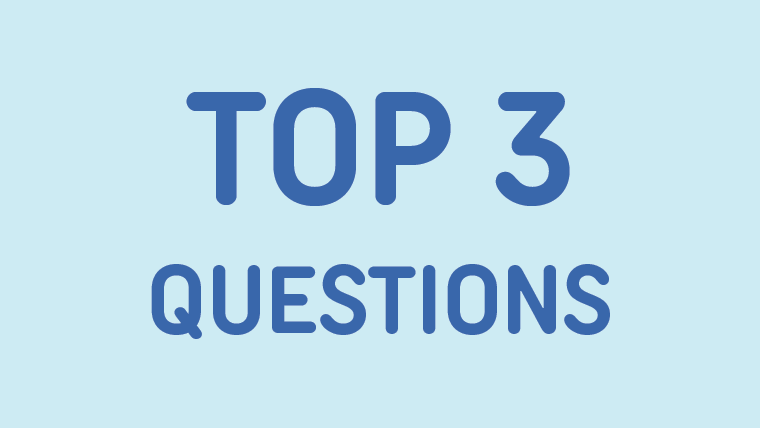
Good morning. My name is Dr Lucas De Toca and I lead the rollout of the vaccine through GPs, pharmacies and other primary care sites. Today we will be answering some of your top asked questions on our social media channels about Covid and the vaccines. As usual I am joined by Linda who will be doing Auslan interpreting. Thank you, Linda. We are on the land of the Ngunnawal people here in Canberra. Dhawra nhuna, dhawra Ngunawal. Yanggu gulanyin ngalawiri, dhunayi, Ngunawal dhawra. Wanggarralijinyin mariny balan bugarabang. I also acknowledge the Traditional Owners of the lands where you may be watching from. Our shout out today goes to families who are coming forward to get vaccinated together. From yesterday, 13 September, everyone 12 years and over is eligible for a COVID-19 vaccine, including kids aged 12 to 15 years old across all of Australia. And we are seeing more and more cases of families coming together to go and get the vaccine as one. With mum and dad, or mum and mum, dad and dad, getting vaccinated at the same time as the kids are and that's really exciting as more and more people get vaccinated throughout the country. Thank you for coming together and getting vaccinated. There will be more and more appointments becoming available in the next few weeks for you and your loved ones to get the vaccine. We are going to be talking about vitamins and minerals and Covid. We are going to be talking about how Covid might affect menstrual cycles, and we're also going to talk about pharmacies and where you can get your vaccine from. Let's go through it.
On a surprisingly regular number of times, we get asked about how mineral or vitamin deficiencies may impact your risk of getting or having severe disease from COVID-19.
Minerals and vitamins are really important micronutrients, elements of our diet that we don't take in as much quantity as the big bits like sugar or protein, but that are really relevant to make sure that our bodies can function properly: can heal wounds, can regulate hormones, can repair cells properly. So of course, any deficiency in vitamins or minerals, like any nutritional deficiency, can make you more prone to infections or severe outcome from infections because your immune system may not be as strong and able to fight them off. It is unclear whether there are any links between specific mineral and vitamin deficiencies and risks from Covid. As a general rule, having a healthy diet, a balanced intake of fruits, vegetables, lean meats, carbohydrates, whole grains, bread, etc., is important to make sure that the balance of nutrients in our body is right, which will help us be stronger to fight off infections. And that is just a general rule, not for Covid, but for everything. It is important that we stay up-to-date with our health. There are a lot times that our regular health checks and screening tests or generally going to the doctor other than for things like respiratory diseases and Covid have been put off because of the pandemic. It's really important we stay up-to-date with all of that, that we still go to our regular medical appointments, and if we feel unwell we go to a medical professional or other health practitioner to make sure that if there is anything underlying, can be treated, Covid or not. Of course as usual, I think I would be remiss not to mention it in every video, if you have any cold and flu symptoms, no matter how mild they are, please isolate, get a test and stay isolated until you get the result.
Another question we get is whether Covid, and the pandemic in general, is having an impact on women's menstrual cycles or periods.
Of course I am not speaking from lived experience. I acknowledge it is always better to have a woman speaking about these things, but as a general rule it is important to note that periods of stress can have a very real impact on menstrual cycles and the regularity of periods and the nature of periods. That happens for a variety of reasons and it can happen with a number of stresses. It is not uncommon for viral diseases or other infections, especially those that make people be very sick, can have an impact on the regularity of menstrual cycles and can potentially affect them or impact them for longer than the disease itself has gone for. That is for a variety of reasons, but in that general sense, situations of chronic stress to the body and not just an infection from COVID-19, but the overall impact on stress levels that the pandemic is having on all of us can contribute to that, can alter menstrual cycles. A significant amount of the regulatory activity in our bodies is impacted by the so-called HPA axis, the hypothalamic-pituitary-adrenal axis, which is the system that controls the release of a number of hormones including adrenaline, which is a short-term fight or flight type of response when we have acute stress and helps our body respond to a situation of danger or stress quickly. If the stress is chronic, then our body releases cortisol, which is a chronic long-term stress hormone that has an impact on a number of systems in our body. Chronic release of cortisol with high levels of stress in a chronic way, like an infection can cause, can definitely alter the menstrual cycle. As always, if you have concerns about your own health, if you are noticing things that are worrying or different to you, consult with your health professional so that you can get your individualised advice in your specific context and circumstances.
The other question we are getting is we keep hearing more about pharmacies and pharmacies joining the vaccine rollout, how does that work? What are pharmacies doing in the vaccine context and how do I find out where to get vaccinated in a pharmacy?
We are really excited that more and more pharmacies every week are joining the vaccine rollout. There are well over 3000 now to date, nationally, offering vaccines to everyone. At the moment, pharmacies are offering the AstraZeneca vaccine, that is approved for people 18 years and over and recommended as the preferred vaccine for people 60 years and over. In the next couple of weeks, we are going to see a rapid expansion of the options within pharmacies with the Moderna, or Spikevax, vaccine coming to Australia. The Moderna vaccine has been approved for people 12 years and over and it will be available through community pharmacies from the week of 20 September. That week, about 1800 pharmacies all across the country throughout that week will start getting deliveries for the Moderna vaccine, and the following week, a further 1800 will also get deliveries. By the end of the month we will have a good 3600 pharmacies offering the Moderna vaccine, which is an incredibly effective mRNA vaccine with the same indications, the same use, same age groups as Pfizer available through pharmacies. Some pharmacies have online bookings, some pharmacies have walk-in options, and in that context it is sometimes very helpful for whole families to go to the community pharmacy and get vaccinated while they are going to do their essential shopping at the grocery store or other contexts. All vaccines' point of presence, whether they're pharmacies, general practices, Aboriginal community controlled health services, Commonwealth vaccination clinics, or state and territory clinics, can be found on health.gov.au in the Vaccine Clinic Finder. If you want to see a consolidated list of all the points of presence available, including pharmacies, please go to health.gov.au. That information can also be accessed on 1800 020 080, which is the National Coronavirus Helpline, and there is a translating and interpreting service available if you need to speak to someone in a language other than English when you call the National Coronavirus Helpline.
That's all we have for today. I hope that was useful. Thank you very much for watching, thank you, Linda, for your interpreting, and stay COVIDSafe. See you next time.







